#lucie manette
Text
How many times do we have to say:
Create characters with strength of virtue, not strength of skills.
I just finished A Tale of Two Cities with the character Lucie Manette, who "does" nothing but love the people around her and extend compassion toward everyone within her sphere of influence. She makes no "choices" that contemporary audiences would award the stupid badge of "giving her agency" to.
She doesn't make a speech that saves Charles Darnay's life. She doesn't lead the victims of the French Revolution into a counter-revolt. She doesn't fight off the soldiers that come to take her husband, or beat up Madame Defarge when she threatens her child, or even come up with the escape plan to flee Paris.
She makes none of those kinds of choices. (You know who does? Madame Defarge. But the compare-contrast between those two can wait till another day.)
But she makes these kinds of choices:
She'll give her honest testimony in a trial for a potential traitor to the crown, and demonstrate her compassion and grief for a near-stranger, wearing that vulnerability on her sleeve in front of a huge court of people clamoring for blood.
She'll be compassionate toward Sydney Carton, even though he's rude, careless, and brings a bad attitude into her happy home.
She'll spend the energy of her life making that home happy.
She'll stand for two hours in any weather on the bloody streets of the French Revolution so her husband might have a chance of glimpsing her and getting some comfort from the prison window.
She'll trust the older men in her life when they ask her to.
She'll allow an old woman to care for her and go everywhere she goes, and treat her like a child, as long as it makes the old woman in question happy.
And what, WHAT is the consequence of these kinds of decisions, choices, that some ignorant people call "passive?"
That old woman is allowed to love Lucie Manette so much that she defeats the villainess in the climax of the story, holding Madame Defarge back from getting revenge with sheer strength that comes directly from that love.
Her father is allowed to draw strength from the fact that Lucie believes she can depend on him--because she chooses to let her father take the lead and do the work of saving her husband, Dr. Manette is fully "recalled to life;" he doesn't have to identify as a traumatized, mentally unstable victim anymore, because Lucie is treating him like he can be the hero.
Her husband does see her in the street, and does draw strength from that--just that--instead of losing his mind the way her father, starved for a glimpse of his loved ones, did during his own imprisonment.
Lucie's home is so full of the love and kindness that she fills it with that not only does her father return to remembering who he is after his long imprisonment--but Mr. Lorry, a bachelor with no family, can feel at home with a full life, there. Miss Pross, whose family abandoned and bankrupt her, has a home with a full life, there. Charles Darnay, whose life of riches and pleasure as a Marquis was empty, has a home with a full life, there. In Lucie's home, because she spends her life making it the kind of home others can find rest in.
Sydney Carton, a man whose whole life has been characterized by a LACK of "care" for himself or anyone else, suddenly cares about Lucie. When he thought it was impossible to. And he doesn't care about her because she's pretty. Her beauty was just a source of bitterness for him--one more pleasure he could've had but can't. Until he "saw her with her father," and saw her strength of virtue, of pity, of compassion, of self-sacrificial love--then he felt that she "kindled me, a heap of ashes, into fire." He started caring about life again, where it was associated with her, because she brought to life every good thing. Just by being a woman of good virtue. And we know what that inspiration led him to.
Without Lucie's strength of virtue, and the decisions that naturally came from that, none of the "active" choices other characters made would have happened. Sydney would not have been redeemed. Darnay would not have been saved. Her father never would've been recalled to life. Miss Pross and Mr. Lorry would've had no light or love in their lives. Even Jerry would've had no occasion to learn from his mistakes and resolve to stop abusing his family.
A character like Dickens' Golden Thread, who does what a woman should do, inspires the choices other characters make. That makes her more powerful, in her own way, than the heroes and any decisions they make. Because she's the cause. She's the inspiration. She's the representation of everything good, right, precious, worth fighting for.
Lucie Manette's not the only character like this. Cinderella. The original Disney Jasmine. The original Disney Ariel. Lady Galadriel. Jane Eyre. Amy March.
"Behind every great man is a great woman," indeed! Absolutely! Bravo!
Hang on! Hang on to those kinds of characters. Those a real "strong female" characters. The muses, the inspirations, the reminders of The Greater Good. The people who make fighting the dragons worth it at all. Who cares about fighting the dragon? That's not so great, without her.
Don't forget those kinds of characters! Reading Dickens just makes me desperate for our generation to keep up the reminder: make characters that the next ten generations can learn from: strength of virtue is much more important than silly little strength of skill.
#Dickens#Charles dickens#writing#storytelling#behind every great man is a great woman#strong female characters#strong woman#Lucie Manette#a tale of two cities#classics#writing advice#feminism#feminism is poison#Christianity#Christian fiction#tropes#Sydney carton
66 notes
·
View notes
Text

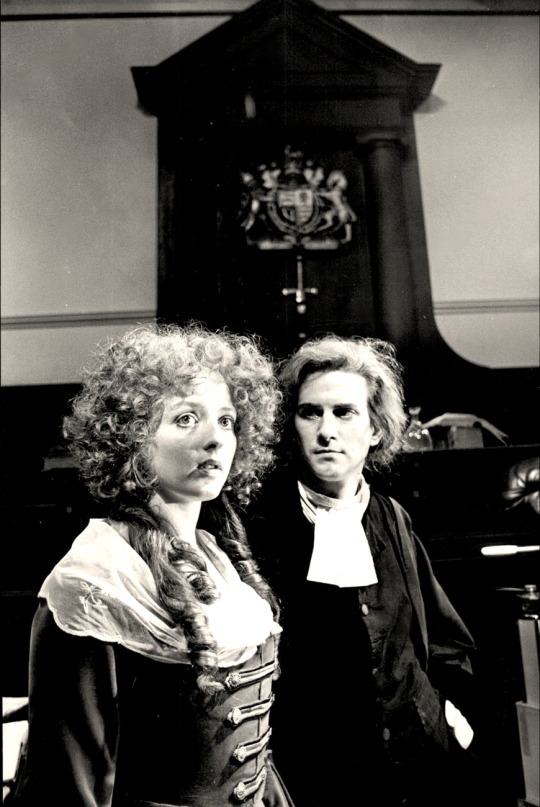
James Wilby and Serena Gordon photographed for their roles in A Tale Of Two Cities, 1989.
#James Wilby#A Tale of Two Cities (1989)#Sydney Carton#Lucie Manette#Portraits#Adventures in Unwatermarking
31 notes
·
View notes
Text
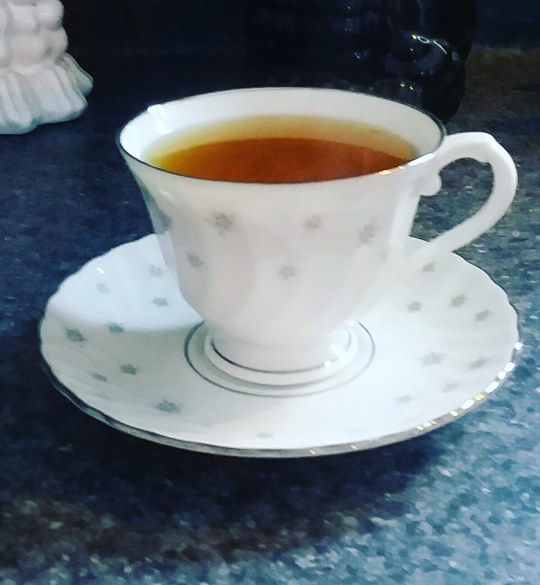
"A wonderful fact to reflect upon, that every human creature is constituted to be that profound secret and mystery to every other"
-Charles Dickens, A Tale of Two Cities
#tea#tea ☕️#🫖#a tale of two cities#sydney carton#charles darnay#lucie manette#charles dickens#i love this book#favorite books#light academia#chaotic academia#aesthetic#picture#aesthetic photography
2 notes
·
View notes
Text
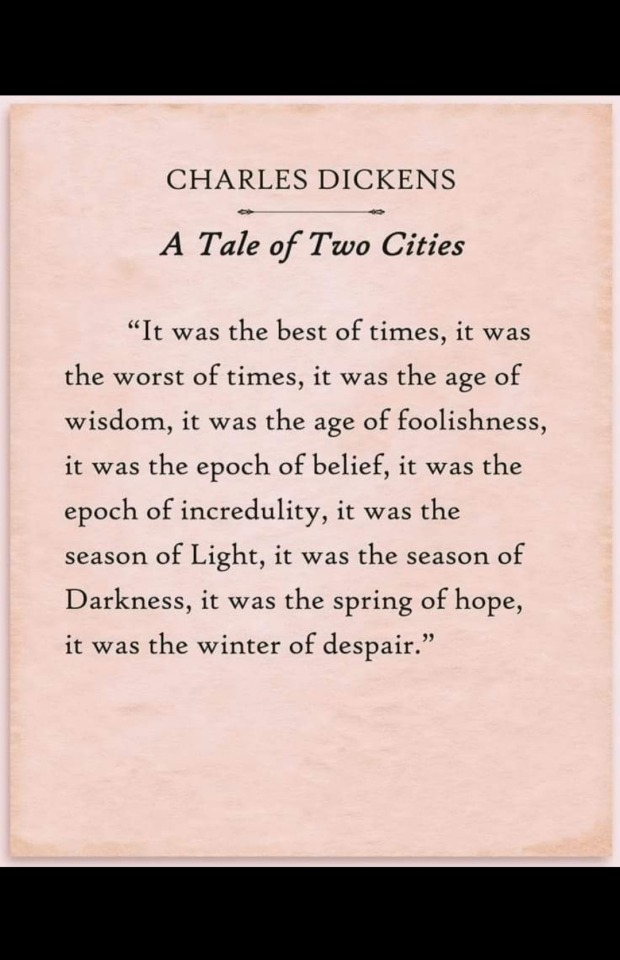
Charles Dickens, A Tale of Two Cities.
#charles dickens#Dickens#a tale of two cities#art#book quotes#booklover#heartbreak#love#the best of times#the worst of times#sydney carton#charles darnay#lucie manette
2 notes
·
View notes
Text
#lucie manette#justine moritz#a tale of two citites#frankenstein#goth lit#gothlit sexywoman contest#round 1
9 notes
·
View notes
Photo
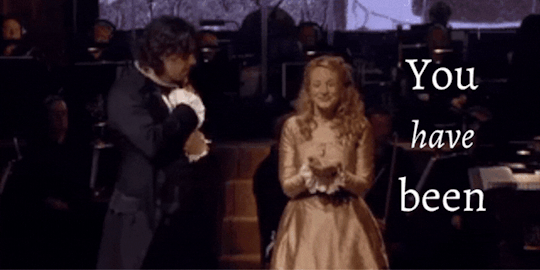

Day Fifteen: Free Day!
>>>“Before I go," he said, and paused -- "I may kiss her?"
.
#ATOTC 15 day challenge#I CAN'T BELIEVE I FINISHED THIS#HAHAHAHA#LOOK AT ME MAKING ATOTC EDITS#I'M SO PROUD OF ME#these gifs are really crappy but i don't even CARE#I made something#atotc#sydney carton#lucie manette#sydney x lucie#sydneycartonedit#atotcedit#a tale of two cites#A Tale of Two Cities the musicals#Challenge day 15#edits by me :-)#gifs by me. :-)#atotc on pbs#gifs#no matter what I did my text got messed up#i probably tried 50 times to fix the formatting so my text wouldn't be blurry#then i gave up#this is why i hardly ever make gifs#it takes me so long to make gifs and apply texts and upload them in the proper formatting#ALSO TUMBLR KEPT REFUSING TO LELT ME UPLOAD THE SECOND ONE#IT TOOK ME AN HOOOOOOUR TO FIX THE ERROR#I HAD TO SAVE IT ALL THESE DIFFERENT WAYS#WHY#UGH
9 notes
·
View notes
Text
Sydney Carton would have loved Conan Gray
#sydney carton#lucie manette#charles darnay#a tale of cities#dr manette#mr lorry#charles dickenss#charles dickens#english literature#classic literature#classic#english#england#london#france#pari#paris#conan gray#taylor swift#olivia rodrigo#music#life#dead#poet#judge#lawyer#student#poetry#literacy
8 notes
·
View notes
Text
“my child is fine” your child chose sidney carton over charles darney instantly
13 notes
·
View notes
Text
in a rare departure from cartonposting, check out this depiction of the iconic scene from "The Shoemaker" on an old cigarette box!
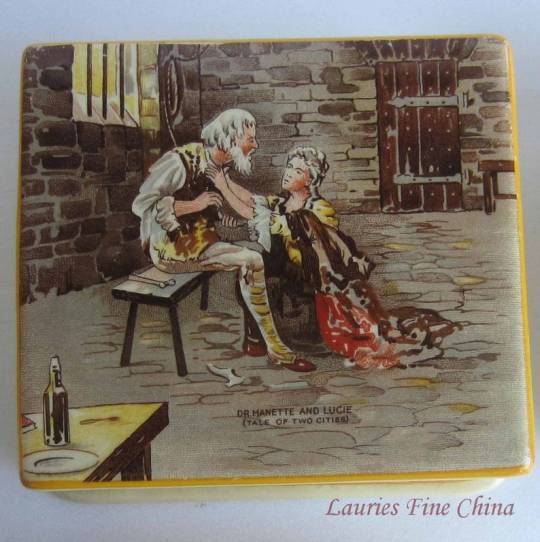
(also more like Lorrys Fine China lol)
#Lucie Manette#A Tale of Two Cities#AToTC#Dickens#classic literature#vintage#antique#memorabilia#Lucie#Doctor Manette#in a reverse image search i also found this illustration on something that Wasn't a cigarette box#yet I couldn't find the origin of this specific photo. huh!#also yes it's back to the archives this week because i didn't finish (or. uh. start yet lol) today's daily sketch in time#which was/is going to be one for here! whoops! got caught up in other stuff. so by next week expect art again!!
3 notes
·
View notes
Text
It's been years since we met Lucie herondale for the first time and it's taking me this long to realize she's named after Lucie Manette from A Tale of Two Cities. I'm the biggest idiot alive
#chain of thorns#shadowhunters#the last hours#cassandra clare#a tale of two cities#lucie manette#charles dickens
3 notes
·
View notes
Text
Lorry: hey miss manette remember how you thought your dad died when you were a kid? yea turns out he’s alive …
Lorry, two seconds later: oh god please don’t cry, here do some multiplication!
#books#reading#booklr#a tale of two cities#dickensian nonsense#charles dickens#atotc#jarvis lorry#lucie manette#lucie darnay#my posts#adrian reads
4 notes
·
View notes
Text
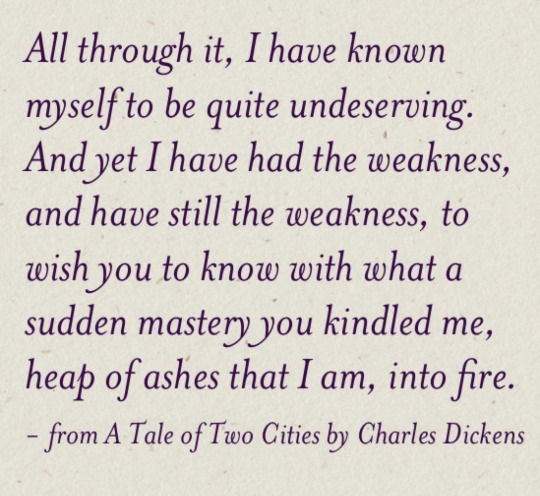
#🥲#one of my all time favorite characters suddenly sprang into my awareness here recently#in case you couldn’t tell#Sydney carton#it is a far far better thing that I do than I have ever done.#a tale of two cities#quote#book quote#Charles dickens#Lucie Manette
26 notes
·
View notes
Text
#spotify#playlist#sydney carton#a tale of two cities#charles dickens#love#sacrifice#one sided love#london#lawyer#mr carton#lucie manette#charles darnay#doctor manette#jarvis lorry
4 notes
·
View notes
Text
#i honestly don't expect any answers for this but here goes#twilight#bella swan#a tale of two cities#lucie manette#poll
1 note
·
View note
Note
For the character ask game: Cosette, 2 + 25 👀
Thanks for the ask, even though I'm answering it late! (For this ask meme)
#2. Favorite canon thing about this character?
My favorite canon thing about Cosette is the way she parallels Jean Valjean-- not just in their traumatic backstories, but also in the way they both often "perform" politeness and kindness. Cosette needs to perform happiness for Jean Valjean in order to convince him to take care of himself, and it's...deeply sad! She has to 'trick' him into not doing self-destructive things by framing it in cheerful lighthearted ways, papering over difficult problems with polite nothings, pretending not to be that frightened or upset, and it's...very sad. And it feels like something that he taught her.
The moments when she attempts to stop all the cheerfulness and talk to her father directly always tend to end with Jean Valjean breaking down-- like the moment when she asks "are you angry with me because I am happy?" or her attempts to ask directly about her mother, which both end with Jean Valjean shedding tears and avoiding her questions. There's something very realistic about that failure to communicate.
I don't know whether Hugo fully considered this a negative thing-- but I do think he understands the way that children often put on a great performance of happiness in order to help their parents.
Cosette is in many ways just Victor Hugo projecting his trauma over the death of his own young daughter onto Jean Valjean and Cosette's relationship, and like. As much as Cosette's writing is often deeply imperfect/ sexist, and as much as I think she should've been given more interiority and agency in the end of the story--- I think you can tell that Hugo did sincerely love his daughter? Cosette doesn't feel like a one-note cloying ingenue to me, but a fictionalized version of a real daughter Victor Hugo sincerely loved.
I also think that Child-Cosette in particular is written very well! Lots of authors struggle to write children, but Hugo really captures a lot of the way children think and speak-- young Cosette isn't a cloying innocent ingenue, she's a starving frightened angry child, and it makes her teenage self far more interesting as a contrast.
As a random addition: Hugo doesn't go into this, but it's fascinating how Cosette is extremely good at lying. She and Jean Valjean kind of share that talent. Very few people manage to trick Jean Valjean-- Marius fails utterly at pretending he's not in love with Cosette, and falls into all of his traps-- but Cosette manages to hide a secret love affair from him for a very long time. It's interesting how the two of them are very good at lying and concealing things from each other, and I don't fully know what to make of it.
Also my hot take is that anyone who thinks Cosette is a bland one-note ingenue should read Charles Dickens' A Tale of Two Cities, and contrast her with Lucie Manette. XD I used to be obsessed with A Tale of Two Cities, but it's basically just "what if Les Mis was bad and all the criticisms about it were actually true?" That novel also features a young ingenue who takes care of her traumatized ex-prisoner father-- but unlike Cosette, Lucie has no interiority or depth, and doesn't feel like anything resembling a real human young girl. All of the interesting things about Cosette- like her naivete/coming of age story, or the way her excessive bubbliness is often an act she puts on for her father's happiness, or her silly funny dialogue, or her own hard past that parallels her father's-- just aren't there.
Again, there are lots of places where I think Hugo's writing of Cosette fails; but there's also a lot of interesting details that are easy for people to explore and dig deeper into in fanworks.
25. What was your first impression of this character? How about now?
My first impression of this character was that she was Fine, but not very interesting? But the more I got invested in the novel and the fandom, the more I appreciated her as a character! Hugo's writing of her is deeply flawed, and she isn't given enough attention in the ending of the book specifically, but there's enough really compelling stuff there to be a great jumping off point for fanworks.
I think I already answered how I see her now in the previous question, but I want to add that I also like that she's nicknamed Madame LaNoir, or the Lady in Black. Goth Cosette is canon! That's very fun to me.
#les mis#it takes me a while to gather thoughts#but yay thanks!!#see like#you cant write a fanfic about lucie manette from a tale of two cities#because theres just like Nothing#theres nothing to build off#shes not even a character#while Cosettes writing is flawed theres still Stuff There#I say this as someone who read A Tale of two cities an ungodly amount of times during my Dickens phase
12 notes
·
View notes
Text


In case you were wondering, yes, I still love them very much.
#I know these aren't great 🙈#But I wanted some Lucie and Darnay content#I wish some highschool would do an amazing production of this and post it to YouTube#Hear that the Kings academy? 👀#Charles x Lucie#Lucie x Darnay#Atotc#Atotc + poto#Atotcedit#A tale is two cities the musical#a tale of two cites#A tale is two cities on PBS#lucie manette#charles darney#musicaltheatredit#gifs made by me#edits by me : )#Lucie x Charles#otp; my dreams came true today#the queue is upon us
1 note
·
View note